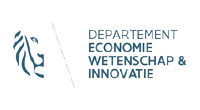Solutions to the social challenges of cities depend on the capacity of local governments
Researchers at the Center for Metropolitan Studies analyze the different dimensions of inequality and how public policies affect them
Elton Alisson, in Brussels (Belgium) | Agência FAPESP – Despite being based on the same three-tier system composed of federal government, states and municipalities, federalism in Belgium and Brazil is quite different. While the Belgian federal system allows subnational governments to be responsible for a series of areas, such as infrastructure and urban development, and have the right to initiate legislation regarding them – supplementing that of federal legislation – in Brazil’s federal system, it is the federal government that regulates public policies in those areas, and it is up to the states and municipalities to execute those policies.
While both states and local governments have the same constitutional status in Brazil’s federalism, it is the federal government that establishes income policies, for example. The states and municipalities, in turn, are responsible for implementing policies regarding services, such as sanitation, public safety, urban mobility and basic health care.
“Brazilian federalism is quite centralized compared with that seen in Belgium,” said Marta Arretche, a professor in the Department of Political Sciences of the University of São Paulo (USP) and coordinator of the Center for Metropolitan Studies (CEM) – one of the Research, Innovation and Dissemination Centers (RIDCs) (CEPIDs) funded by FAPESP, in a talk presented at FAPESP Week Belgium, held in the cities of Brussels, Liège and Leuven October 8-10, 2018.
“That centralization of power occurs in many dimensions and in public policies that affect the country’s subnational governments, which are the states and municipalities,” Arretche said.
Since the states and municipalities are responsible for carrying out public policies and providing essential public services – such as basic health, education, infrastructure and public transportation – they have had to face and seek solutions to the social challenges of Brazil’s metropolises, the researcher went on to say.
“Education, health, transportation and urban services have increasingly become a matter of responsibility for regional or local governments. As a result, even though there are national policies, an individual’s access to public services is measured by the capacity of the municipalities in which they live to provide them,” Arretche said.
The researcher explained that one of the CEM lines of research focuses on the different dimensions of inequality and how public policies can affect them.
The main question to which the researchers have devoted themselves is to what extent public policies can disrupt the relationship between an individual’s income and access to public services. “In general, we found inequalities across regions, inequalities among cities in metropolitan areas and inequalities within cities,” Arretche said.
A more inclusive city
In order to fight social inequalities on a regional scale and enable the inclusion of the underprivileged and their families in the Belgian capital, Brussels began the Metrolab project in 2014.
The project aims at supporting the European policies of urban development that could lead to environmental, social and economic improvements for Brussels, explained Mathieu Berger, a professor of sociology at the Catholic University of Louvain (UCL) as well as project coordinator, in a talk presented at FAPESP Week Belgium.
“The project is multidisciplinary and brings together four of the main research disciplines involved in urban development: sociology, architecture, urban planning and geography. In this way, we can address most of the urban projects and seek a wider perspective in order to increase their chances of leading to important applications,” he said.
The project is part of a comprehensive European public policy program – the European Regional Development Fund (EDRF) – that seeks to promote regional development of the European Union, including Brussels.
The European Fund supports 46 projects that address various topics and overall sustainable development areas relevant to the cities. The investment has exceeded 200 million euros. “This type of funding for academic research to support public policies is the first of its kind in Brussels,” Berger said.
He went on to point out that the projects funded by the EDRF and supervised by Metrolab in Brussels include such things as refurbishing a food center in Anderlecht, renovating and transforming a medieval abbey into a cultural center in Forest, opening a health clinic for the disadvantaged in Cureghem, and developing a sports and recreation center at the Boitsfort Hippodrome.






